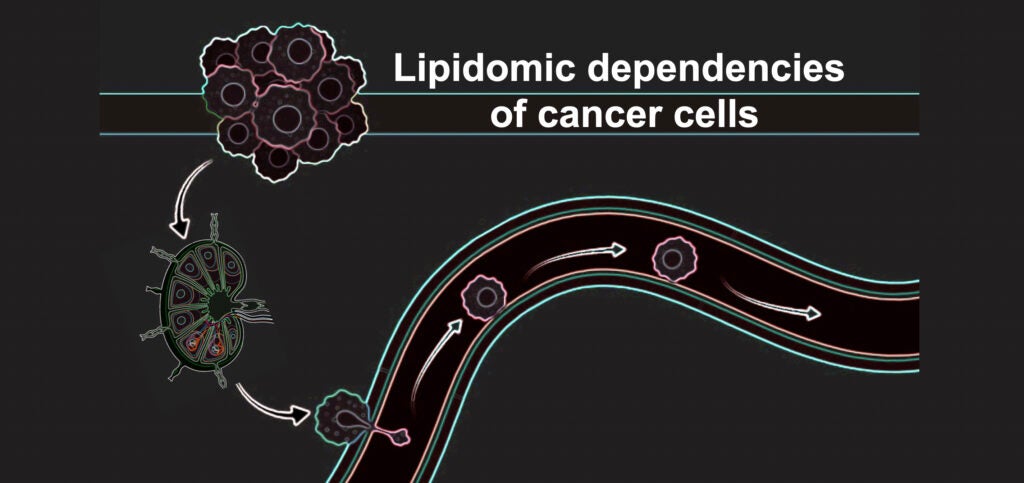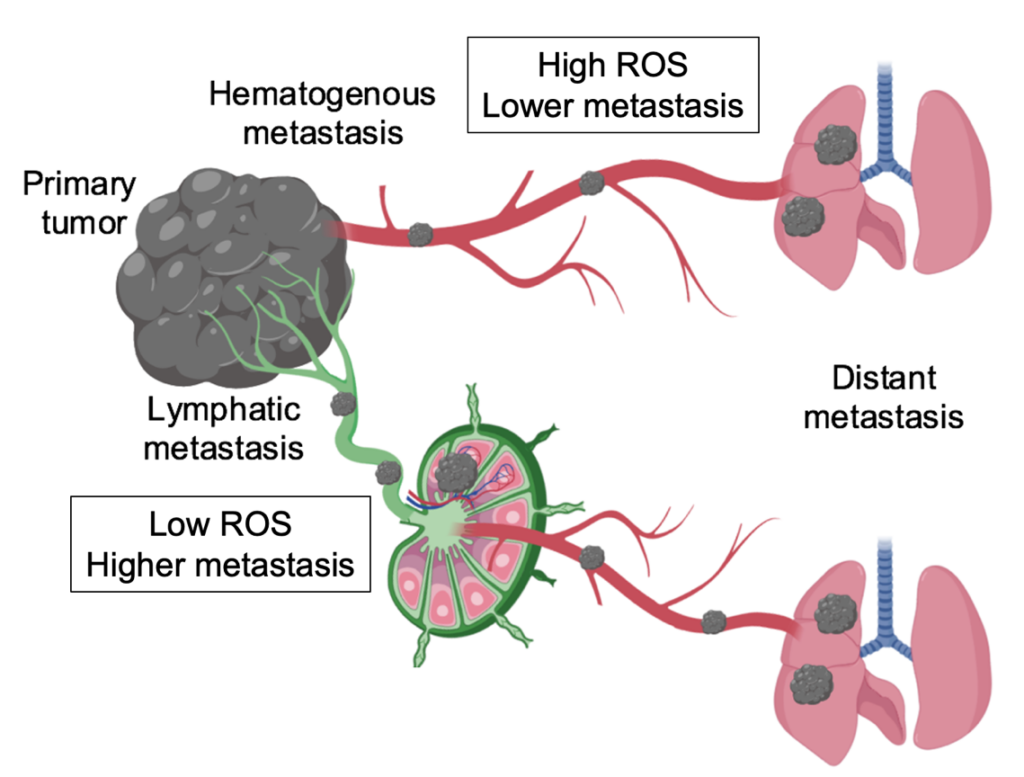Ubellacker Lab
The Ubellacker Lab leverages metabolic vulnerabilities in metastasizing cells to target and treat cancer, with a focus on exploiting lipidomic dependencies of cancer cells. We are working to discover mechanisms that explain how lipid availability in the tumor microenvironment promotes cancer cell progression at different metastatic stages. We aim to capitalize on connections between cancer cells and the lipid microenvironment to reduce cancer progression, thus addressing a significant unmet clinical need to develop therapies to prevent the spread of metastatic cancers.
665 Huntington Ave
Building 2, Room 123
Boston, MA 02115
Welcome to the Ubellacker Lab
The Ubellacker Lab leverages metabolic vulnerabilities in metastasizing cells to target and treat cancer, with a focus on exploiting lipidomic dependencies of cancer cells. We are working to discover mechanisms that explain how lipid availability in the tumor microenvironment promotes cancer cell progression at different metastatic stages.
We employ models of melanoma, breast, and prostate cancers with genomics, metabolomics, and lipidomics to identify and target novel programs of lipid metabolism required for metastasis. We aim to capitalize on connections between cancer cells and the lipid microenvironment to reduce cancer progression, thus addressing a significant unmet clinical need to develop therapies to prevent the spread of metastatic cancers.

Our Research
The major reason cancer causes illness and death in patients is because cancer cells from an initial tumor can travel to lymph nodes or into the blood to spread to other organs in a process known as metastasis. The mechanisms that regulate metastasis are poorly understood. However, it is known that cancer cells encounter oxidative stress in the bloodstream that induce cancer cell death and limit the ability of cancer cells to metastasize.
Cancer cells in lymph experience less oxidative stress and undergo specific lipidomic adaptations to withstand subsequent oxidative stress in blood, rendering the lymphatics a more efficient route for the early stages of metastasis. This suggests we should develop therapies that exacerbate lipid oxidative stress experienced by cancer cells and inhibit the mechanisms cancer cells use to protect themselves from lipid reactive oxygen species.

Our goal is to leverage metabolic vulnerabilities in metastasizing cells to target and treat cancer, with a focus on exploiting lipid metabolism to sensitize cancer cells to lipid oxidation as a novel therapeutic strategy to inhibit metastasis.
Current projects address:
- How do differences in lipid availability influence cancer metastasis?
- What intracellular differences in lipid metabolism influence metastatic efficiency?
- How does the metabolic environment of the lymphatic niche mediate metastasis?
These projects will uncover novel metabolic vulnerabilities in metastasizing cancer cells that can be therapeutically targeted to suppress early-stage disease progression.
Support Harvard Chan School
Every gift contributes to our mission of building a world where everyone can thrive. To learn more about how you can support the Ubellacker Lab, please contact the Harvard Chan Development Office.